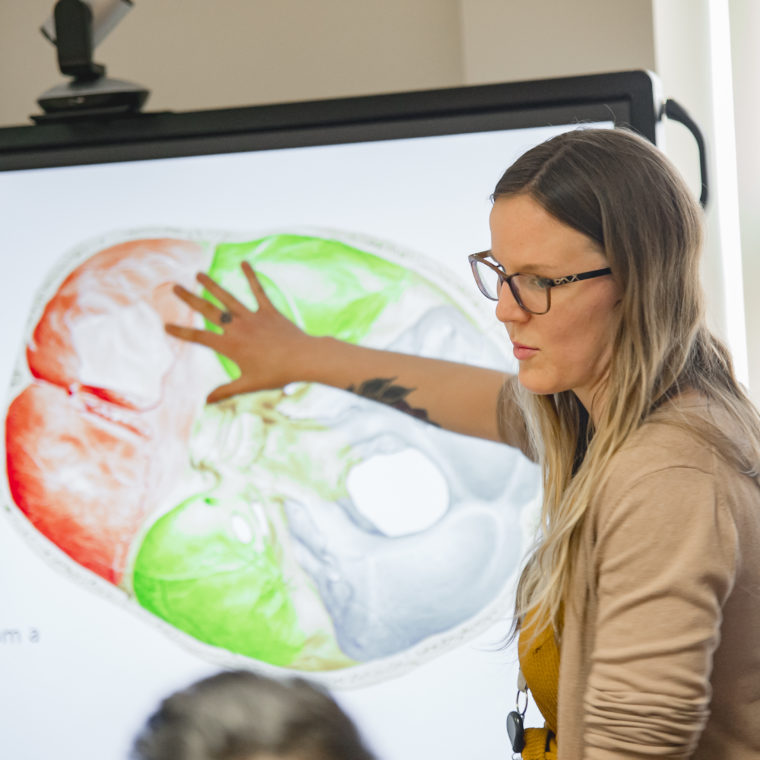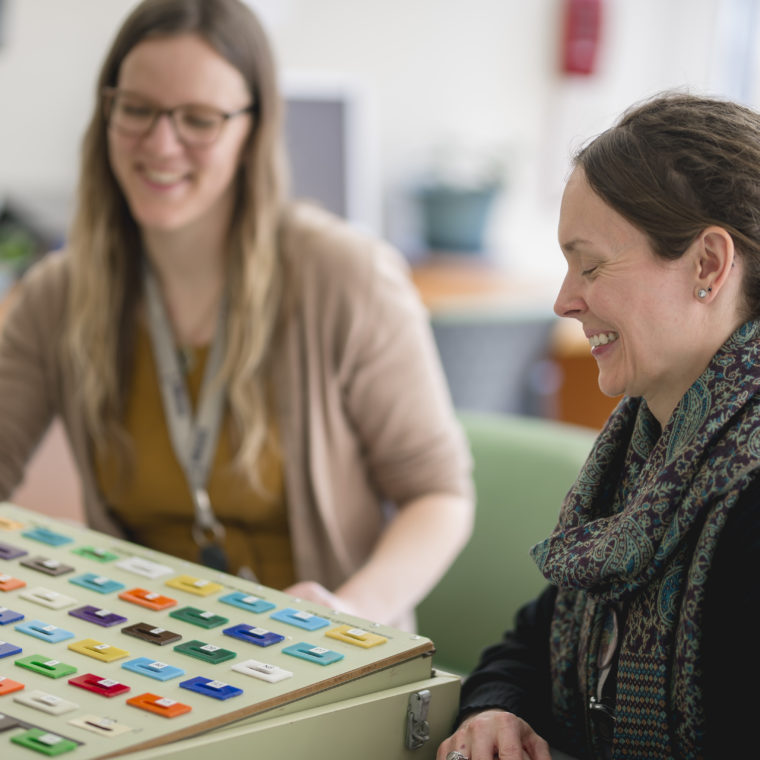BRIDGING THE GAP IN BRAIN INJURY TREATMENT
NEURO-RESOURCE FACILITATION FOR MARGINALIZED & UNDERSERVED POPULATIONS WITH ACQUIRED BRAIN INJURY, 2018 IPAC GRANT

The Community Re-Entry Program at Drucker Brain Injury Center at MossRehab is working to make traumatic brain injury (TBI) a societal conversation among Philadelphia nonprofit and government agencies. Thanks to a grant from the Albert Einstein Society (AES), Neuro-Resource Facilitation is now being offered to and connecting more TBI survivors with treatment and rehabilitation services.
TBI survivors are more likely to be involved in the criminal justice system than peers their same age. They’re often misdiagnosed with mental health problems, incarcerated for impulsive or destructive behavior caused by their injury, or never receive the treatment they need. Approximately 60.25% of adult offenders reported having at least one head injury.
Brain Injury Therapists Gillian Murray, DSW, LSW, CBIS, and Claire Sitarz are training area professionals who work with marginalized and underserved persons, especially victims of intimate partner violence (IPV) and ex-offenders (EO), to identify and screen clients they serve who demonstrate symptoms of TBI. For example, a TBI might complicate how a survivor acts while on parole or their behavior in a courtroom or with authority.
“There’s no way we would’ve been able to do this work without AES”

“IPV dwells in these shadow places,” explains Sitarz. “It happens when no one is around or seeing it, and neither the victims nor their aggressors are seeking help. So, we thought, how do we reach these people to let them know there is help? We want to help them understand what they’re experiencing could be caused by an undiagnosed TBI.”
The first step to understanding is to create awareness and train staff who work with prison populations and those who have experienced IPV. Sitarz and Dr. Murray, who is also a case manager, have trained hundreds of providers affiliated with the corrections system in Philadelphia, mental health services, social work staff, and others to understand this underserved community and help them get the healthcare they need and deserve.
AES provided the funding needed for both Sitarz and Murray to train professionals and share available resources.
“Einstein is committed to their employees, and AES is a wonderful example of that commitment,” Murray says. “They understand how important it is to support employees seeking to develop best practices and innovative ways to better serve our community. A lot of patients we see here really need our help. The fact that there is a resource offering the flexibility and opportunity for employees to launch projects like this is unique.”